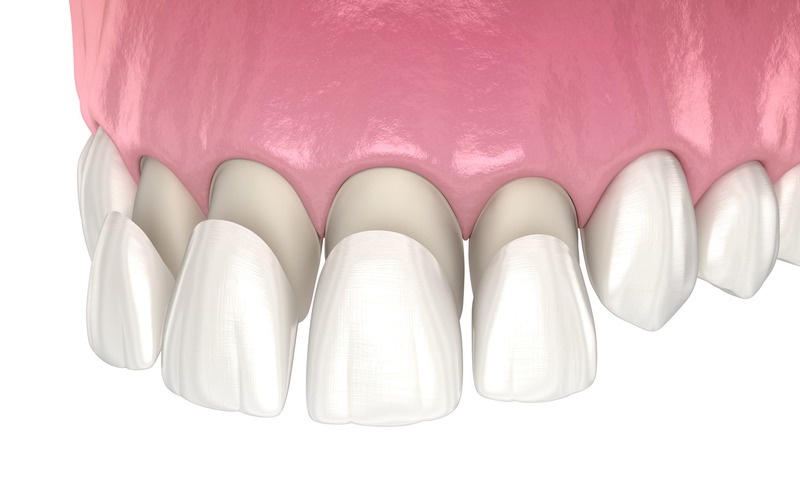Dental emergencies can be both frightening and painful. Whether it’s a sudden toothache, a broken tooth, or any other unexpected dilemma, knowing what to do in those first crucial moments can make a world of difference. By acting swiftly and efficiently, you can alleviate pain, reduce damage, and set the stage for a more effective dental treatment when you finally see your dentist.
Common Types of Dental Emergencies
Before diving into the steps of handling emergencies, it’s important to know what situations constitute a dental emergency. Here’s a quick rundown of some common scenarios:
-
Severe toothache: Persistent pain that doesn’t ease with over-the-counter medication.
-
Broken or chipped tooth: Often due to trauma, causing damage to the structure of the tooth.
-
Knocked-out tooth: Typically caused by accidents or injuries.
-
Lost filling or crown: Causes discomfort or pain when eating.
-
Abscess: A severe, painful infection near the root of the tooth or gums.
-
Bleeding gums: Could indicate gum disease or trauma.
Immediate Steps to Take in a Dental Crisis
When faced with a dental emergency, the first few steps you take can prevent further damage. Here are some critical actions you can take:
Stay Calm
It might sound trivial, but staying calm can help you think more clearly and act more efficiently. Panicking can exacerbate the situation, making it difficult to deal with the problem effectively.
Assess the Injury
Identify what type of dental issue you’re dealing with. Check if it’s a chipped tooth, a lost filling, or a more severe problem. This assessment will guide your next actions.
Handling a Toothache
A toothache can range from mildly uncomfortable to intensely painful. Start by rinsing your mouth with warm water to remove debris. Use dental floss to remove food caught between your teeth. Avoid placing aspirin or any other painkiller against the gums, as it can irritate the tissue.
Dealing with a Knocked-Out Tooth
If a tooth has been knocked out, time is of the essence. Hold the tooth by the crown, not the root, rinse off any dirt without scrubbing it, and try to put the tooth back in the socket if possible. If it doesn’t fit, store it in a container of milk or a tooth preservation product and see your dentist immediately.
What to Do with a Lost Filling
Losing a filling can lead to discomfort and increased sensitivity. As a temporary measure, use over-the-counter dental cement or a piece of sugar-free gum to cover the hole until you can see a dentist.
First Aid Kit for Dental Emergencies
Your household first aid kit should include some essential items to handle dental emergencies effectively:
-
Sterile gauze pads for bleeding
-
A small container with a lid (for a knocked-out tooth)
-
Dental floss
-
Over-the-counter pain relievers
-
Temporary dental cement
-
A cold compress or ice pack
Pain Management Before Seeing a Dentist
Managing pain is critical when dealing with dental emergencies. Use over-the-counter pain relievers like ibuprofen to help alleviate discomfort. But remember, these are temporary measures, and you should still seek dental care promptly.
Cold Compress for Swelling
If you experience swelling due to a dental injury or infection, apply a cold compress to the outside of your cheek for 15 minutes at a time. This can help reduce both the swelling and pain.
Mouthwash and Rinses
A saltwater rinse can be soothing and help keep your mouth clean. Dissolve a teaspoon of salt in a cup of warm water and rinse gently. This can help soothe inflamed tissue and manage infection.
When to Seek Professional Help
While temporary measures can help manage dental emergencies, professional treatment is essential. Knowing when to seek help can make all the difference:
-
If you have a knocked-out tooth
-
When pain is severe and unmanageable
-
If you suspect an abscess or infection
-
When bleeding continues for more than 10 minutes
-
If a dental appliance, like braces, is damaged
Finding Urgent Care
It’s never a bad idea to have contact information for an emergency dentist ready in case of urgent dental issues. Regular dental offices may not be open 24/7, so knowing who to call in a pinch can save you a lot of time and stress.
Preventative Measures for Avoiding Dental Emergencies
While you can’t predict every dental accident, you can take steps to lower the risk:
-
Brush and floss regularly to maintain good oral health
-
Wear protective mouthguards during contact sports
-
Avoid biting on hard substances like ice or hard candy
-
Visit the dentist regularly for check-ups and cleanings
Consideration for Dental Implants
For those dealing with extensive dental issues, procedures such as all on 4 dental implants in Winchester may offer a long-term solution over traditional dentures or treatments. This option provides a stable foundation and can prevent some of the common problems that lead to emergency situations.
Affordable Solutions to Dental Health
Investing in preventative care can often mean seeking solutions that fit your budget and health needs. By exploring affordable dental implants Winchester and alternative dental options, you can create a personalized plan that minimizes the risk of emergencies.
Final Thoughts
While dental emergencies can be disruptive and daunting, being prepared to handle them can ease the process significantly. With the right immediate actions and a plan for professional follow-up, you can minimize pain and damage. And by incorporating preventative practices into your routine, you can reduce the likelihood of facing such emergencies. Remember, taking care of your oral health is an ongoing commitment.


